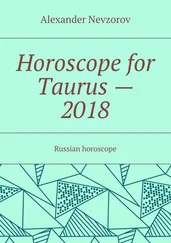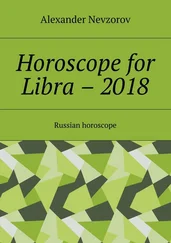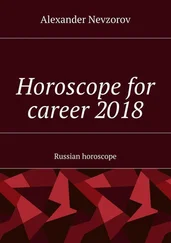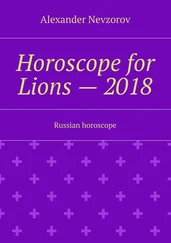I remember Professor J. B. S. Haldane, when for a short period he served with the brigade as a private soldier, standing in a trench, brandishing a tiny snub-nosed revolver, and shouting defiance at the advancing Franco infantry. Luckily for science, we managed to repel the Rebel attack and the professor was spared for his further contributions to world knowledge.
I was posted as battalion transport officer. Ranks at that time bore little relation to fact. I was not "politically reliable" and as such ranked lower in the political hierarchy than the fellow comrade who had sold the Daily Worker with distinction in North Shields. Though I never achieved commissioned rank, I performed all the duties for my battalion which would have been carried out in the British Army by a transport officer. The work was as varied as it was dangerous, ranging from the prosaic bringing up of the rations to the evacuation from an encircled town of the Republican alcalde with the entire civic funds. In this case the alcalde abandoned us first and fell promptly into the hands of skirmishing Moorish cavalry. The funds, however, lingered for days in the boot of the car, as we had rashly supposed that the mayor had been evacuating his wardrobe rather than his revenue. It was on such a trip, with Franco planes machine-gunning the road, that, bundling without dignity into a nearby shell hole, I was stepped softly on by Slater, then on the Planning Staff, who was similarly hurrying for shelter from the back seat of my car. He curled himself gracefully down on top of me with an exquisitely polite "Excuse me" which I have always treasured as a fine example of courtesy under difficulties.
There were not unnaturally preliminary teething pains in the battalion. One of these resulted in the Irish contingent's transferring in a body to the American Lincoln Battalion; they refused to serve under Macartney because he had been an officer in the Black and Tans in Ireland after World War I. Eventually the British Battalion was included in the 6th International Brigade, which for the greater part of the Civil War formed part of the 11th Division of the Republican Army.
This division was commanded by a Russian-trained General "Walter, " who recently became Minister for War in the Polish government. By using his Christian name he was following the example of his Soviet colleagues, who preferred to veil their identities behind a noncommittal first name. I myself came into close touch with only one Red Army officer while in Spain; this was a certain "Max" who, despite his junior rank of captain and his function as "observer, " wielded great authority. He came into my life again later when his endorsement of my suitability for work for the Red Army Intelligence helped to establish me in the confidence of the Russian D. M. I.
As an infantry soldier the strategy and politics of the war naturally passed me by. We, fighting in the line, knew little or nothing of Barcelona and Valencia politics and intrigues, and less still of their international ramifications. We only knew that we fought, always ill equipped and frequently under-armed, against an enemy who appeared to be furnished with a multiplicity of modern weapons. Our task was not made easier by the frequent "purges" of our officers which took place. After every reverse we could be certain that one or more of our colleagues would vanish- failure and "Trotskyist inclinations" being almost synonymous. Attacks did fail. This is hardly surprising when an army, often with only five live rounds a day to fire off, is thrown against a well- equipped force with modern weapons and stiffened with foreign troops. Not all our failures, however, can be attributed either to the Republican General Staff or to the lack of equipment. The "Moscow Operation" of Fuentes de Ebro will long be remembered by those who were lucky enough to survive it.
It appeared that Moscow had evolved a new tank theory which they wished tried out, not in mock combat but in battle conditions, which were found, conveniently and economically, in Spain. (I have no more bitterness toward the Russians for this technique than I have toward the Germans and the Italians, who did exactly the same thing. The only difference is that the Germans were publicly arraigned for it at Nuremberg. ) The idea was to throw some forty tanks against the enemy during the siesta. These tanks were to break through the infantry front line and push straight forward to the artillery and, having disposed of the latter, turn back and take the infantry in the rear. The tanks were brand-new and the crews were Germans newly trained in a Russian tank school. It was in vain that our chief of staff, Malcolm Dunbar, pointed out that the rebel position had been heavily plastered with artillery fire, with the result that the irrigation ditches had been broken and the place was a quagmire. Moscow orders were orders, and the attack went in. Some twelve out of the forty tanks returned; the majority of the rest were captured intact by the enemy. I trust that the lesson was instructive to the Russian observers. It was certainly so to the surviving tank crews, who drove their Russian commander back to the base area never to be seen again.
This is, however, all past history, and the average person nowadays has forgotten the Civil War or remembers it merely as a curtain raiser to the second Great War. Of course it was such, and my comrades in their unmarked graves round Teruel were merely the first skirmishers in the great encounter to come.
After two years' continual service with the International Brigade, I was sent back on leave to England in September 1938 to be present at the Communist Party Congress at Birmingham. The political commissariat at the brigade must have regarded me with some favour to allow me, a non-Party member, to be selected to return. My job as transport officer made me less vulnerable to accusations as a "Trotskyist" and my personal friendship with my own particular commissar may have helped. I left the brigade, decimated by losses and beginning to be demoralised by "purges" never to return.
The original intention had been that I should return to Spain- though not as a fighting member of the I. B. The Party had decided that I was a suitable person to run a Red Cross truck which was to go to Spain from England at regular intervals, carrying medical supplies and comforts. This part of the assignment was highly respectable. The organisation which ran the service was non-Communist and the funds were raised by public subscription. This was to be only my "cover." My real job was to have been as a courier between King Street (the headquarters, then as now, of the British Communist Party) and the Communist command of the British Battalion of the brigade. I was also to have acted as a passeur for unauthorised persons who wished to enter Spain (it will be remembered that by this time non-intervention was in full swing and frontier control had been tightened up) and as a smuggler of unauthorised goods. I was also to ensure that the lion's share of the goods in my truck went to the politically enlightened. This job, however, fell through.
To this day I do not know whether it in fact ever existed or whether it was merely put up to me to see my reactions to employment which was, to say the least, not quite what it seemed and definitely illegal Party work. Whether the offer was genuine or not does not really matter. The job was stillborn and that particular move in the undercover game of chess was over. It was Red's turn to move again and another pawn was put out temptingly. I accepted the move and the real game began.
After the Congress in Birmingham and a few days' leave, I returned to London and reported to King Street to discuss the Red Cross job. I was there met by Fred Copeman, who told me that the whole project had fallen through. Fred was an old friend, as he had been at one time commander of the British Battalion of the I. B. He invited me to his flat in Lewisham for a meal with him and his wife. After supper the next move was made.
Читать дальше












